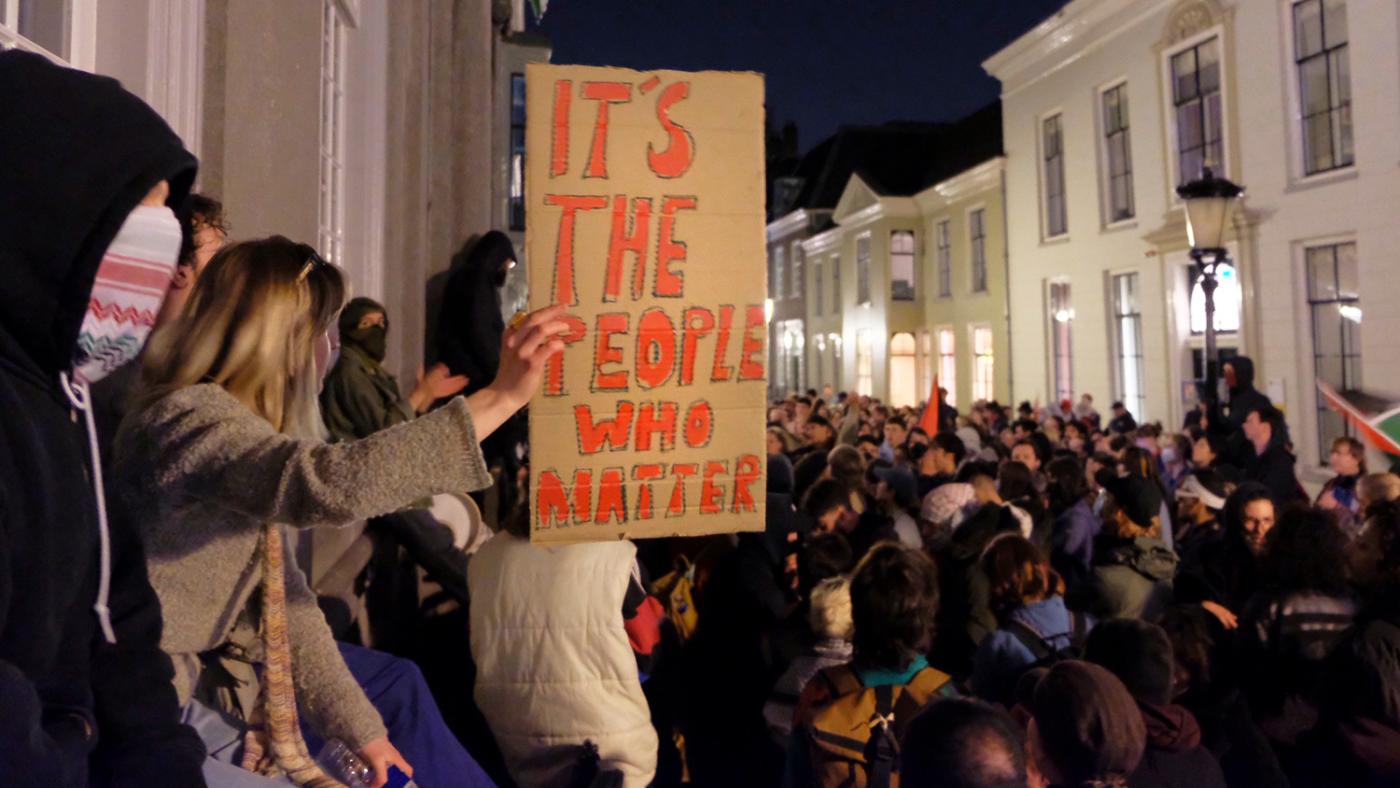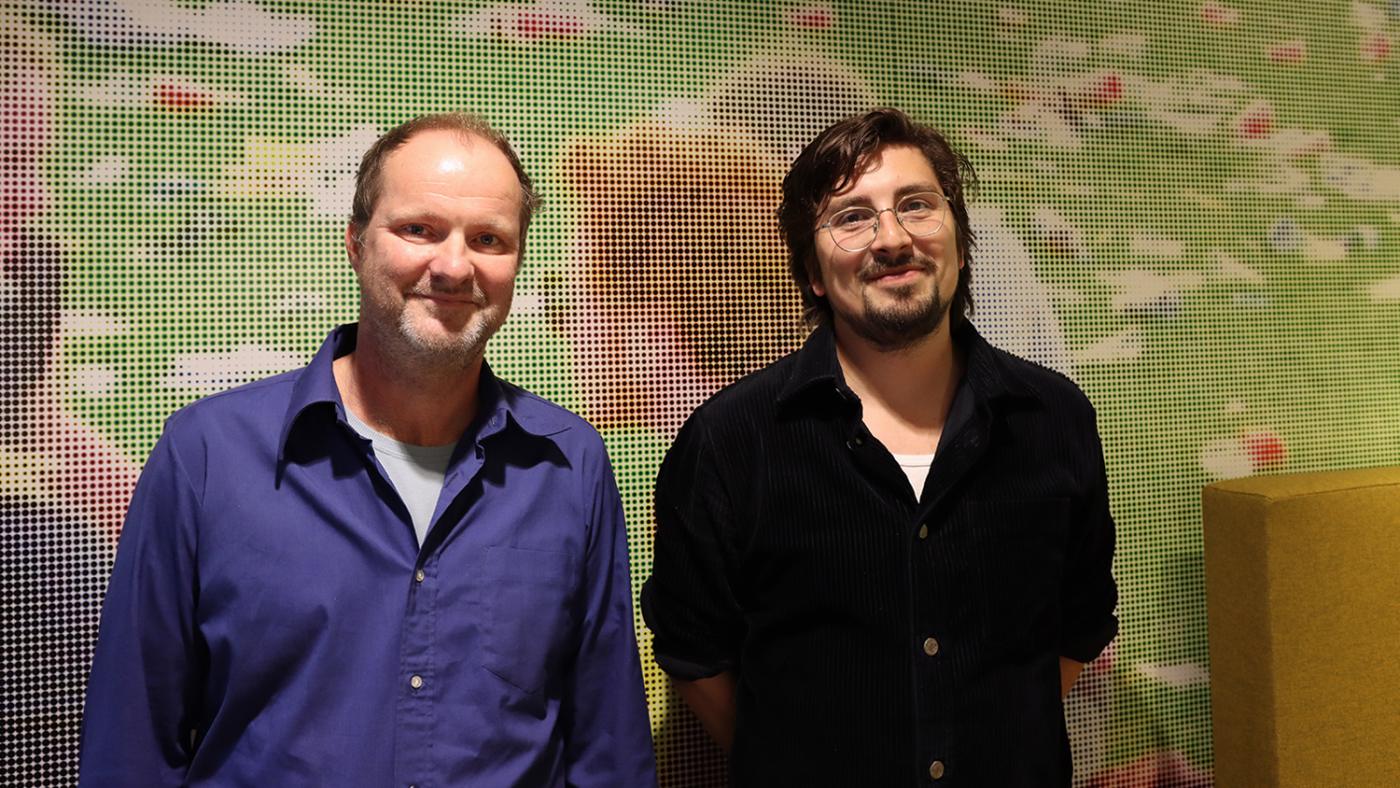Reflecting on a tough year
'The greatest benefit from learning to talk to each other is achieved in peacetime'

The summer break is around the corner. “We'll get some rest at last”, many will sigh. After all, this past academic year has been pretty hectic at UU. For many people, the results of the last Parliamentary elections, late last year, came as a hard blow. The winning parties fiercely oppose an alleged “woke” culture in universities, question the scientific consensus about climate change, and aim to suppress the influx of foreign students and staff. Many wondered who those voters were: are they in our university and, if so, shouldn’t we engage in a dialogue with them?
But things really went ablaze after the war in Gaza. On October 7, Hamas caused a bloodbath, killing and kidnapping 240 Israelis. Israel didn’t take long to respond. For months, it has been attacking the Gaza Strip. The Israeli government says it is trying to destroy Hamas, but in reality, the attacks have killed almost 40,000 civilians, of whom at least 14,000 were children. The longer the attacks go on, the more outraged people get. Can we call this a genocide? And should we be partnering up with a country that is responsible for such a carnage?
Part of UU’s community says no. In their view, collaborating with Israeli institutions is unacceptable. They find that UU should oppose Israel openly and terminate all forms of collaboration with their universities and organisations. What started with small-scale demonstrations has grown to become an ever-fiercer battle. For the first time, the university’s anniversary ceremony was interrupted by protesters, who also occupied university buildings a couple of months later. Their tone became harsher. Wearing face coverings, the protesters accused UU of being complicit in genocide. The Executive Board cancelled academic debates on the subject and had the riot police intervene to put an end to the occupations. Some of the students and staff with a Jewish background say they no longer feel safe at UU. Other students and researchers also have a hard time talking about the subject. Even the University Council is divided on this issue. So, where is that university-wide debate?
Bjorn Wansink acknowledges the polarisation. He is an associate professor in Education & Pedagogy, as well as a consultant for organisations such as the Organisation for Security and Cooperation in Europe (OSCE), the Council of Europe, and the Radicalisation Awareness Network. “I would like to make an observation. In the 17th century, there was a huge conflict at Utrecht University between the philosophers Descartes and Voetius. We wouldn’t have this many women working as professors and administrators without a fight, either.” He refers to the university’s slogan, “Shaping a better world”, and says: “That’s what we want in a university. Working together towards a better world. But you need a bit of friction to achieve progress. You need people who are vocal and take action or resist peacefully, if necessary.”
Saro Lozano Parra is an assistant professor in Citizenship & Education, working for the History programme. He appreciates that students are voicing their concerns about this social issue. “The university is a place where students can evaluate the world time and again, learning to relate to social dilemmas. That’s why I find it incomprehensible that UU offers so little space for them to do that in the classroom and limits protests. The university’s administrators should have engaged in a more serious conversation with those students first, as that is part of democracy. And they definitely shouldn’t have deployed police violence against their own students to clear the property.” He recently published an op-ed about this subject on ScienceGuide (available in Dutch only, Ed.).

Bjorn Wansink and Saro Lozano Parra. Photo: DUB
Wansink is also active in TerInfo, a project founded by Beatrice de Graaf that aims to start conversations about thorny subjects in secondary school. Wansink: “We are providing tools for pupils to discuss topics like terrorism or conspiracy theories in class. We’re dealing with both knowledge and pedagogy, specifically focusing on the historical context. In addition, we teach teachers to anticipate students’ questions, give them room to tell their stories, and display their emotions – as long as they do it in a way that is honest with their classmates and they listen to each other in a safe space.”
What could be done at the university level? Wansink: “Studying at the university level is more than attending seminars. It doesn’t matter if you study Chemistry, Biology or History, you are always dealing with social and ethical questions. Hence the need to discuss them, As a teacher, you must turn conflicts into something educational. Take a class on diversity, for example. When an earthquake happened in Morocco, I sent everyone an e-mail asking if they were okay and supporting them. A while later, a similar disaster happened in Lybia and I didn’t do anything. I raised this question in class: wasn’t it hypocritical of me? When should you care and when should you not? This ignited a lively discussion with the students.”
Wansink believes that conversations about social and ethical topics should be part of the university's fabric. “I’d say the real work should be done during peacetime. That’s when you create an environment where people learn from each other. Then, when a conflict such as the one going on in Gaza happens, that structure already exists. Now, many teachers seem to be struggling, not knowing how to deal with these frictions in class.” Alongside a team of colleagues, Wansink develops courses for teachers to show them how to go about such tensions in the classroom.
People in academia tend to rely on facts and figures, which makes sense, but, according to Wansink, sometimes doing that complicates things. After all, those same facts and figures can lead to different choices or different emotions. “This has to do with someone’s point of view, for example. If you come from a Muslim background, you will regard and react to certain events differently than someone with a Jewish background. It has to do with your identity and whether your identity is under scrutiny. You should be able to put yourself in someone else’s shoes. For instance, I have my students read far-right books so that they know how this group experiences society. It is important to realise that understanding another perspective is not the same thing as agreeing with it.”
Lozano Parra finds that people at the university are sometimes too concerned with final verdicts and not so much with the process. In his view, there should be room for emotions in a debate. “One should pay attention to that in the process.” In Gaza’s case, some scientists would like to continue working with their Israeli counterparts, while others are adamant about severing all ties. We should listen to their motives. Wansink himself has partners in Israel with whom he would not like to part ways. Due to his work as a peace educator, he is in touch with a peace organisation in Israel called School for Peace. “They live in a village where half of the population is Jewish and the other half, Palestinian. They strive to build an equal society by setting up a joint school, for instance. In my view, it would be really strange to cut contact with them, as these initiatives for peace actually need our support.”
Both scientists feel as though the university community is stuck. They are not talking about Gaza specifically, but rather about the atmosphere and how people engage with each other. Usually, the loudest people are the ones heard in a debate. Lozano Parra: “We should keep moving. Otherwise, the process will freeze. Democratic education means repeatedly putting ourselves and each other at risk. This is about the game and not about the marbles.” He suggests UU consider democratising its code of conduct: to what extent teachers and students can think along and make decisions? How could we sustainably embed this democratisation?
Wansink stresses that the whole UU community is responsible for this. Everyone should consider how they can contribute to taking a step forward, and how they can help shape a better world. However, he considers that the Executive Board has a significant task. “Think about the Peter Parker principle: 'With great power comes great responsibility.’” Lozano Parra adds: “That means allowing for friction and seriously engaging in a debate with the entire university community.”
To achieve that, the university must make considerable efforts to formulate a pedagogical vision that indicates the extent to which UU wants to be reactive or proactive. For example, when it comes to safeguarding human rights, what does UU do as an institution and how much space does it give to its lecturers? In addition, what exactly constitutes an academic conversation about a thorny subject? The university has now initiated dialogues on Gaza. It is making an effort, but, according to Wansik, the format is still too open. He warns against letting these initiatives bleed to death when things calm down again. The real work happens in peaceful conflict during peaceful times.
Wansink: “The students have started the engine and it goes beyond Gaza. After the summer break, a new academic year will start and debates will emerge. Let us work together at this university on creating an open atmosphere in which we don’t only talk about knowledge in the lecture halls, but also about ethical questions we are faced with and how the university, as part of society, can contribute to a better world. Even though there is no single path, we only share one world.”